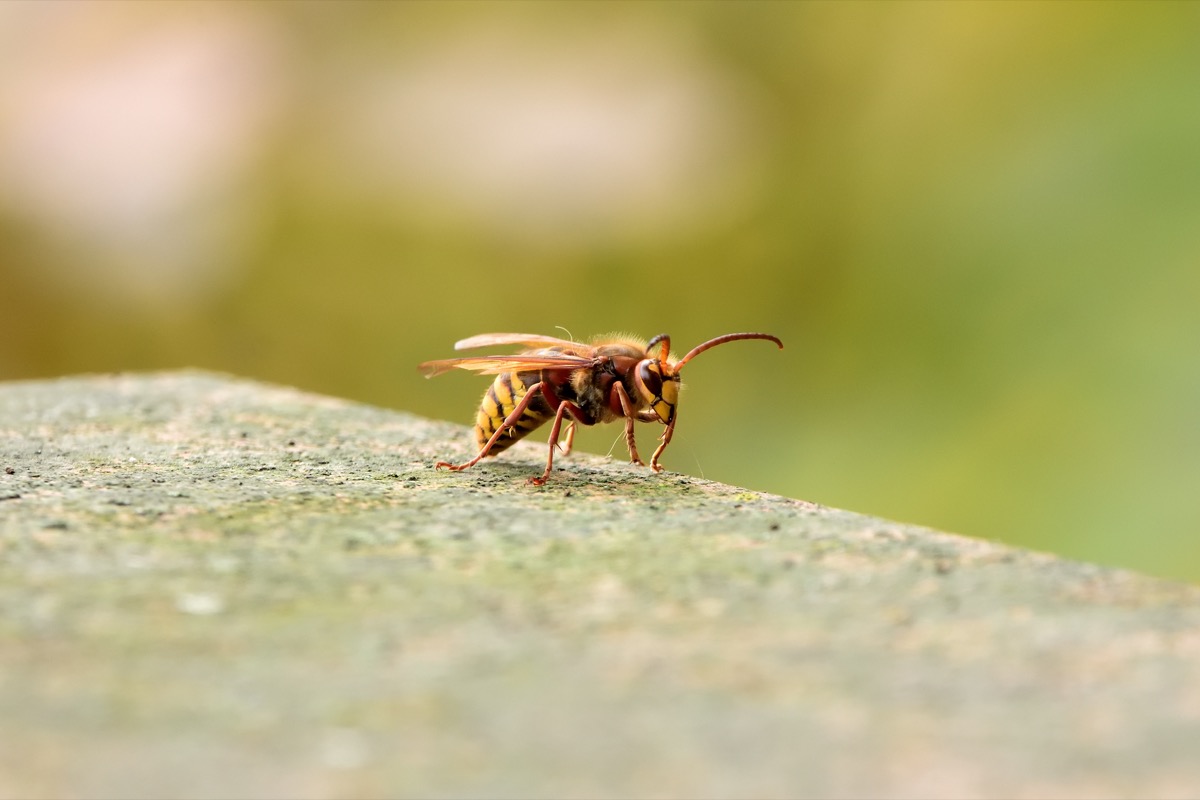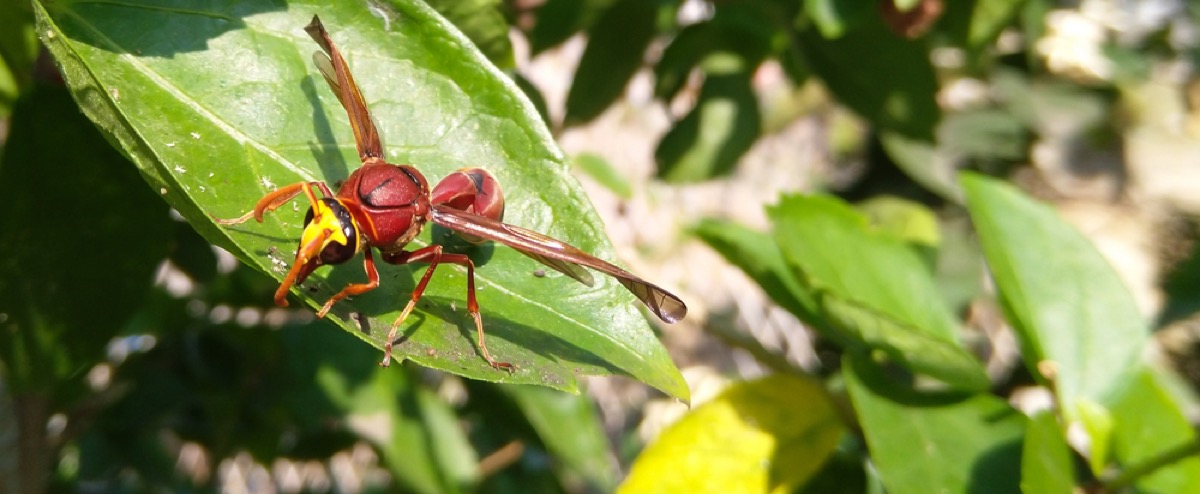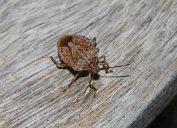If You See This Terrifying Insect, Call the Authorities Immediately
Officials are asking for your help in eradicating this invasive bug.

The first murder hornet was reported in the U.S. in Aug. 2019, but these creatures made headlines last year as more emerged amid the COVID pandemic. The pesky insects are a menace to humans, but they pose an even more significant threat to honey bees. And if these hornets wipe out our honey bee population, we will suffer the consequences. As the murder hornets' hibernation comes to a close, officials are asking you to help eradicate the invasive species. Keep reading to find out what you should do if you spot a murder hornet, and for signs of infestation you need to know, If You Smell This in Your Bedroom, You Might Have Bed Bugs.
Call local authorities if you see a murder hornet.

Murder hornets grow up to five centimeters long and have a wingspan of up to seven centimeters, a menacing stinger, and a large orange head, Vice reports. If you see an insect that resembles this description, officials urge you to call authorities and report the incident. Sightings of these hornets have mostly occurred in Washington state and British Columbia, but they could travel outside of these areas. If you spot one in Washington, report the sighting online via email at [email protected], or by calling 1-800-443-6684.
Vice reports that on March 17, Paul van Westendorp, an apiculturist with the B.C. Ministry of Agriculture said, "We would like to use the public's eyes to report sightings because we just don't have enough resources to be everywhere all the time." According to Vice, public reporting in Washington in 2020 led to 31 sightings, culminating in the eradication of one nest containing hundreds of queen murder hornets. "It's an absolutely serious danger to our health and well-being," Westendorp added. "These are intimidating insects." And for more insects to look out for, If You See This in Your Yard, Prepare for a Bug Invasion, USDA Says.
Murder hornets pose a threat to humans and honey bees.

The murder hornets, also known as Asian giant hornets or Vespa mandarinia, pose a significant threat to honey bee colonies and other local insects that play an integral role in our ecosystems, Vice explains. Although the murder hornets don't tend to be aggressive towards humans, an Aug. 2020 article described a sting from one of these hornets as "excruciating." The study also noted that, unlike honey bees, hornets can sting multiple times.
"This is not a species we want to tolerate here in the United States," Sven-Erik Spichiger of the Washington State Department of Agriculture told the Associated Press (AP). In addition to reporting sightings of these pests, there's another step you can take to help eradicate them. And for more insect onslaughts, If You Live Here, Prepare for a Major Bug Infestation, Expert Warns.
You can construct a trap for murder hornets.

Vice reports that scientists at the U.S. Department of Agriculture and the B.C. Ministry of Agriculture, Food, and Fisheries encouraged citizens to set a trap for murder hornets. To create a trap, lay out a mix of one cup of brown sugar and one cup of water to lure and trap the murder hornets. People should do this in April, as the end of the hornet's hibernation period approaches. Per the AP, Washington state officials will use an orange juice and rice cooking wine mixture to trap the hornets, which citizens are also welcome to try concocting. And for more up-to-date information, sign up for our daily newsletter.
Officials are trying to determine how the murder hornets are getting to the U.S.

Officials are working to pinpoint where exactly the murder hornets came from. By understanding the hornets' origin, experts can better determine how they are making their way across the Pacific Ocean. Spichiger told the AP that the current theory is that these hornets are crossing the ocean on cargo ships. And for more bugs you'll want to avoid, These Awful Bugs You Forgot About May Soon Come Back, Exterminators Warn.





















